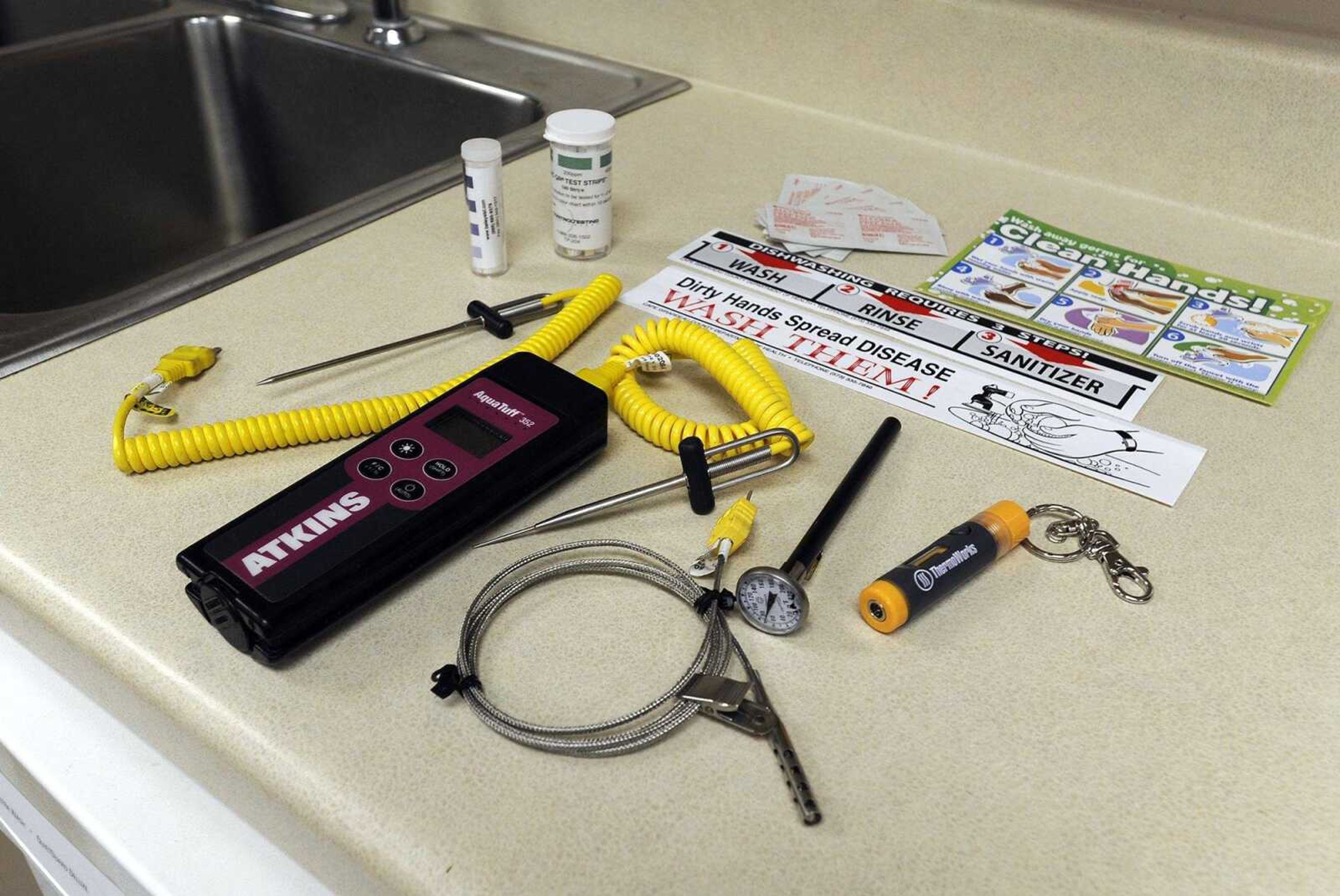Cape County Health Center ensures restaurants are 'up to par' with inspections
Restaurant managers may wince at the sight of a health inspector walking through the door, but the inspector's job is to make sure the diners of the establishment are safe from foodborne illnesses. Officials at the Cape Girardeau County Public Health Center are responsible for conducting health inspections of local restaurants periodically throughout the year...
Restaurant managers may wince at the sight of a health inspector walking through the door, but the inspector's job is to make sure the diners of the establishment are safe from foodborne illnesses.
Officials at the Cape Girardeau County Public Health Center are responsible for conducting health inspections of local restaurants periodically throughout the year.
Supervisor of the Environmental Services Department Amy Morris said there are five most common risk factors for foodborne illnesses and health inspectors concentrate their efforts on those factors.
"They include holding food at the wrong improper temperature, cooking food to improper temperatures or failing to cook food to the proper temperature, using contaminated equipment and poor personal hygiene," Morris said. "Those are typically what causes foodborne illnesses by themselves."
Different priority levels and complaints determine how often a restaurant receives a health inspection by the organization. The three priority levels are low, medium and high and the levels are based on what type of ingredients are used and the processes the restaurant workers do when preparing the food.
Restaurants storing its raw ingredients, cook the food from a raw state and reheat food are typically a high priority. Businesses recognized as a high priority level are supposed to be inspected every six months.
Medium priority restaurants are typically fast food establishments or sandwich shops, such as Jimmy John's and Subway. These are inspected every nine months.
Low priority businesses include places serving food, but reheat cooked food from a frozen state. These can include bars and are inspected annually.
Health inspectors use a variety of tools when conducting their inspections including thermometers to measure the temperatures of food or the dishwasher to ensure dining utensils are properly cleaned between uses, inspection checklists, digital light meter, alcohol swabs, pH strips and chlorine test strips. The inspections also include the inspector asking the manager on-duty a list of questions.
Morris said if a restaurant does not pass inspection the first time the inspector does a follow-up inspection to make sure the problems have been corrected since the first inspection.
"We sit down with the manager to actually go over the violations," she said. "We settle on a date that those violations need to be corrected and then we go back to verify that it has been done. We decide on those time frames, because with some violations, such as repairs, those are not going to be usually made in a couple days. So, we may talk about a compliance schedule there because those are usually noncritical items."
Health inspectors have a minimum of a four-year degree from an accredited university and must have 30 hours of science courses. The inspectors also must attend training courses before they are allowed to inspect an establishment. Trainings are provided each year to the inspectors to give them a refresh of the information they use at their job.
Connect with the Southeast Missourian Newsroom:
For corrections to this story or other insights for the editor, click here. To submit a letter to the editor, click here. To learn about the Southeast Missourian’s AI Policy, click here.









